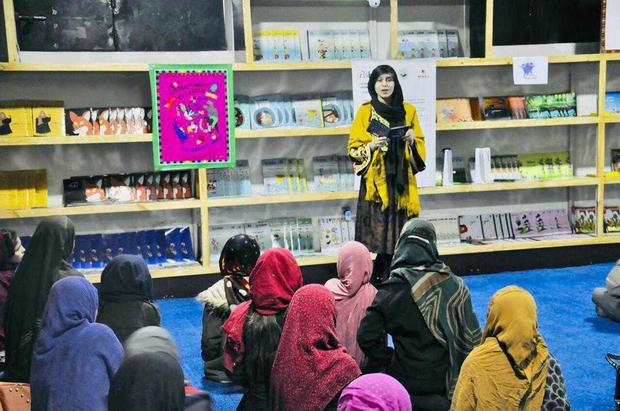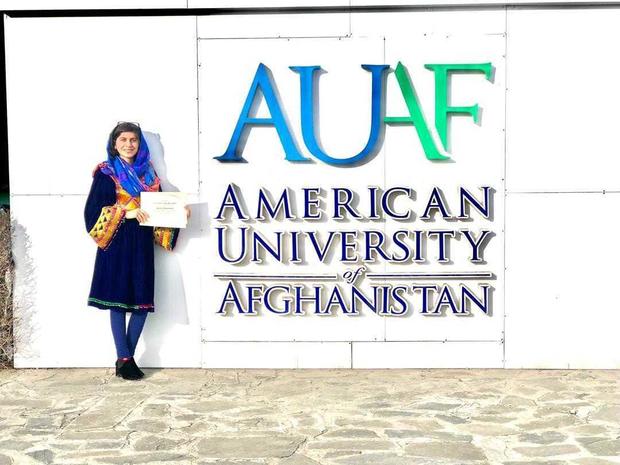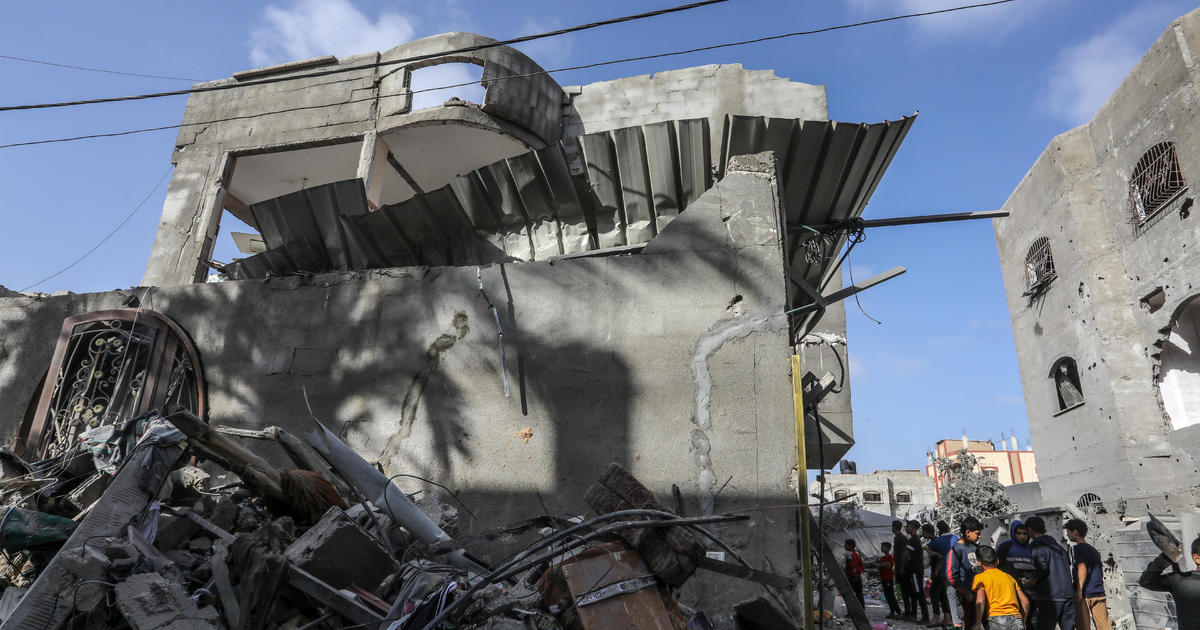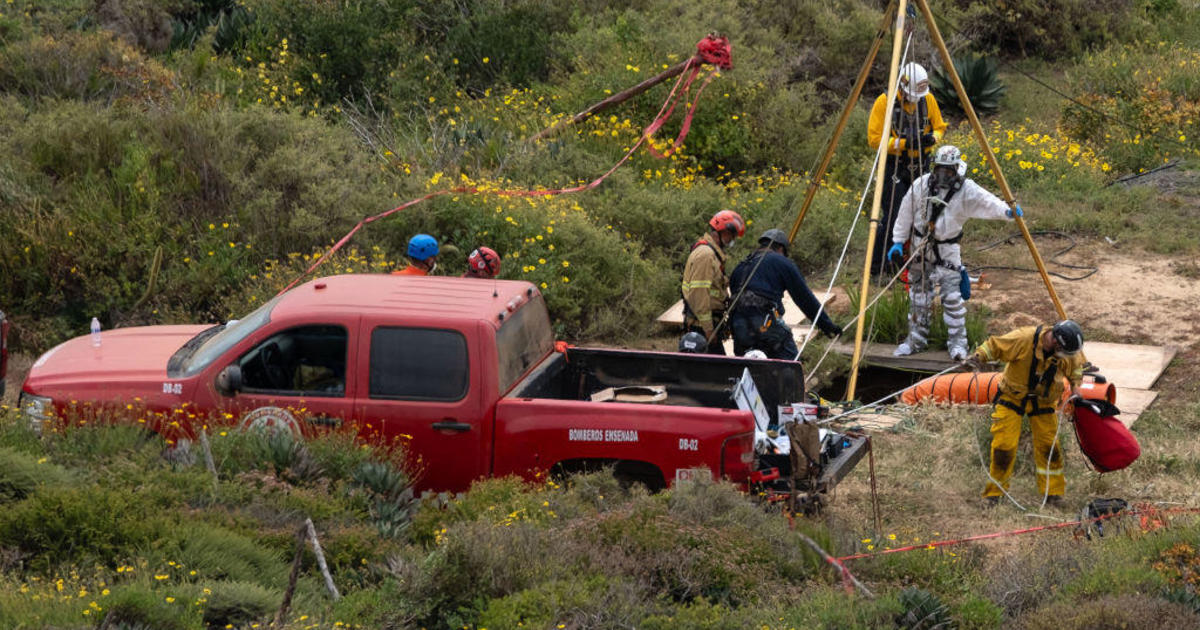Americans provided "life-changing" educational opportunities in Afghanistan. But the Taliban takeover could end that.
As the security situation in Afghanistan deteriorates with the Taliban onslaught, years of American investment in the infrastructure of Afghan education remains.
As of Friday morning, Taliban forces now control two-thirds of Afghanistan, including the key cities of Ghazni and Kandahar.
Like with everything else in Afghanistan, the future of education, particularly for women, depends on whether the Taliban take over the country.
Afghan educators and students hope the American support of education in Afghanistan does not end with the military withdrawal.
Literacy rates for Afghans 15 and older have increased from 31.4% in 2011 to 43% in 2018, according to the World Bank.
USAID reports that since 2001, student enrollment grew from 900,000 male students to more than 9.5 million students, 39% of whom are girls, in 2020.
"Over the last 20 years, there's no question, virtually every major indicator -obviously with the exception of violence- infant mortality rates, literacy rates, GDP per capita, women's rights, the ability of girls to go to school. All of that has vastly improved, particularly in urban areas of the country," said Seth Jones, director of the transnational threats project at the Center at CSIS.
USAID maintains it will continue to invest in Afghanistan's education, citing the Biden administration's commitment to remain engaged with the government of Afghanistan, according to a spokesperson for the organization.
One pillar of U.S. education investment has been the American University of Afghanistan (AUAF). Established in 2006 with a grant from USAID, the university was founded with the idea of implementing an American higher education model.
"It was life changing. It completely transformed me as a person. The university is like a window to the world. You can see so many opportunities," Shafiqa Khpalwak, a former student at AUAF and director of the Musawer Foundation, told CBS News.
Khpalwak, 25, started a foundation that works on children's literature and education. She recounts that in times when sentiments towards Americans were bleak, AUAF was a legacy the U.S. could be proud of.
Now she fears for the future stability of the country and the university.
"I'm angry because this was not my war. This was not my conflict. This was not my problem. This was the world's problem. And unfortunately, it came together in my country," Khpalwak said. "They are forgetting that, yes, you paid us some millions of dollars, but we paid back by our blood, by our lives. This was not a one-sided relationship."
Professors at AUAF say their students are grateful for the American investment, but the care that the U.S. has expressed in their academic future cannot stop now.
"The university is really one of the only positive U.S. legacies in Afghanistan that has no dark corners," says Dr. Victoria Fontan, a Professor of Peace and Conflict Studies at AUAF.
Anxiety prevails among students who have gotten a glimpse at what opportunity could look like, only to fear it may slip away.
"I think that if you show people a way out and then you close that window on them, they can turn against you. I think it's really important to understand that because if the Taliban come back for good, there will be a lot of resentment in the future generations. Fool me once, but not twice."
In the last year, over 60% of the university's funding has come from USAID. In February 2021, USAID awarded AUAF with a new cooperative agreement that extends until January 31, 2022.
Administrators believe the relationship with USAID will outlast the military occupation. But at the same time, the administration is endeavoring to diversify its sources of funding, a common practice for university administrators.
Dr. Ian Bickford became AUAF president in March 2021, a time when every university leader was challenged with running a school during a pandemic, but with Afghanistan's political turmoil added on top.
Bickford insisted the university is here to stay in Afghanistan.
"It's important to us as the American engagement in Afghanistan changes, that our commitment to the next generation of Afghan leaders is permanent. We're committed to doing everything we can to endure and remain," Bickford tells CBS News.
The university plans to stay ingrained in life in Kabul, but it is keenly aware of the growing instability surrounding them. In 2016, the university suffered a deadly attack that killed 13 people. A July UN report found civilian casualties hit a record high in May and June amid the U.S. withdrawal.
Contingency plans are in place in the event that the physical campus is no longer safe, including further digitalization of curriculum and potentially expanding into other countries.
The legacy of American investment in Afghanistan's education continues to be seen in the lives of a generation.
"Two decades have passed since the Americans came to Afghanistan, and we have been introduced to certain concepts that are now part of our lives- women's rights, human rights, freedom of speech," said Omar Sharifi, assistant professor of social sciences and humanities at AUAF.
Sharifi believes these concepts have become a reality of everyday life regardless of American physical presence.
But the same ideals engrained over decades in the minds of educated Afghans now place a target on them.
Assasination campaigns against academics and journalists have been ongoing since early this year.
In May, an explosive device targeted a bus carrying students and faculty from Al-Beroni University killing four. In April, a gunman shot a university lecturer in Kabul, according to Scholars at Risk Network.
"It's been a very tense relationship between Western non-governmental organizations and civilian development agencies from governments, whether it's USAID or the British development agencies, and the Taliban," Seth Jones tells CBS News. "They view them as essentially arms of their security agencies and intelligence agencies. They view them as the bearers of Western values, which they strongly disagree with."
For all the academic achievements, a majority of the country remains uneducated and without access to institutions like AUAF. Then there are those who do fear the future of education amid the unknown future of Afghanistan.
Khpalwak cannot remember a world ruled under the Taliban, growing up in a time of increased freedoms. But she no longer worries about her own losses in the future.
"I'm a writer and a poet and no one can stop me from dreaming, imagining, thinking and writing. I'm concerned for the children and for other women. I'm thinking about my girls. Will they have the opportunity to go to school after grade six?"





